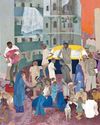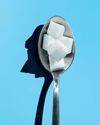Proof that reading boosts your brain.

Here’s a simple question—answer it honestly, because your response could boost the amount of pleasure in your daily life, delay dementia and even help you live longer: How many hours did you spend reading books last week?
This question has arrived in thousands of homes in the US every other year since 1992 as part of the University of Michigan’s Health and Retirement Study (HRS). A minor item on a massive survey of more than 20,000 retirees, it had long gone ignored in the analysis of elder brain health. But in 2016, when researchers at the Yale School of Public Health dug into 12 years of HRS data about the reading habits and health of more than 3,600 men and women over the age of 50, a hopeful pattern emerged: People who read books—fiction or non-fiction, poetry or prose—for as little as 30 minutes a day over several years were living an average of two years longer than people who didn’t read anything at all. Odder still, book readers who reported more than three hours of reading each week were 23 per cent less likely to die between 2001 and 2012 than their peers who read only newspapers or magazines.
If you’re reading this, it’s safe to assume you don’t need to be sold on the merits of the written word. You may already be familiar with recent findings that suggest children as young as six months who read books with their parents several times a week show stronger literacy skills four years later, score higher on intelligence tests and land better jobs than non-readers. But recent research argues that reading may be just as important in adulthood. When practised over a lifetime, reading and language-acquisition skills can support healthy brain functioning in big ways. Simply put: word power increases brain power.
هذه القصة مأخوذة من طبعة October 2017 من Reader's Digest India.
ابدأ النسخة التجريبية المجانية من Magzter GOLD لمدة 7 أيام للوصول إلى آلاف القصص المتميزة المنسقة وأكثر من 9,000 مجلة وصحيفة.
بالفعل مشترك ? تسجيل الدخول
هذه القصة مأخوذة من طبعة October 2017 من Reader's Digest India.
ابدأ النسخة التجريبية المجانية من Magzter GOLD لمدة 7 أيام للوصول إلى آلاف القصص المتميزة المنسقة وأكثر من 9,000 مجلة وصحيفة.
بالفعل مشترك? تسجيل الدخول

STUDIO - Off Lamington Road by Gieve Patel
Oil on Canvas, 54 x 88 in

NEWS FROM THE WORLD OF MEDICINE
FOODS THAT FIGHT DEMENTIA

TO HELL AND BACK
The Darvaza crater in Turkmenistan is known as the Gates of Hell. I stood on its edge - and lived to tell the tale

THE SNAKE CHARMERS
Invasive Burmese pythons are squeezing the life out of Florida's vast Everglades. An unlikely sisterhood is taking them on

Sisterhood to Last a Lifetime
These college pals teach a master class in how to maintain a friendship for 50-plus years

...TO DIE ON A HOCKEY RINK
ONE MINUTE I WAS PLAYING IN MY BEER LEAGUE, THE NEXT I WAS IN THE HOSPITAL

Just Sit Tight
Broken, battered and trapped in a ravine for days, I desperate driver wonders, \"Will anyone find me?\"

Allow Me to Mansplain...
If there's one thing we know, it's this: We're a nation of know-it-alls

THE BITTER TRUTH ABOUT SUGAR (AND SUGAR SUBSTITUTES!)
It's no secret that we have a serious addiction. Here's how to cut back on the sweet stuff, once and for all.

A Baker's Dozen Facts About Eggs
1 EGGS ARE perhaps the most vital life force. More than 99 per cent of animal species reproduce via oviparity (egg laying), with mammals being the notable outliers. And even then, there are two striking exceptions: the echidna (spiny anteater) and the platypus, the only mammals that lay eggs.